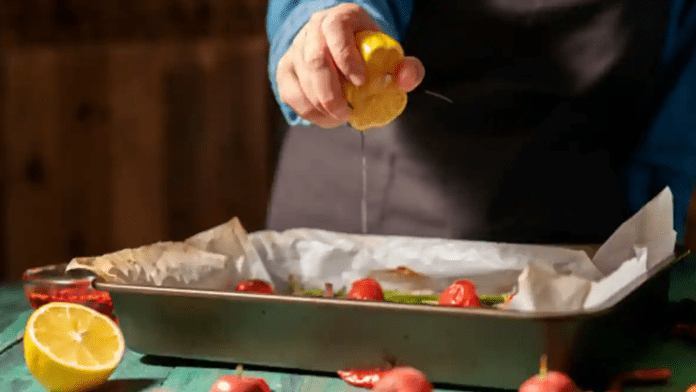Lemon juice is a popular ingredient known for its tangy flavor and acidic properties. It is often used as a garnish or dressing for various dishes, and many people enjoy squeezing fresh lemon juice onto their hot food. However, recent research suggests that this practice may not be as beneficial as previously thought. In this article, we will explore the reasons why you shouldn’t squeeze lemon juice on hot food.
Effects of Heat on Lemon Juice
Heat can have a significant impact on the properties of lemon juice. When exposed to high temperatures, the acidity and flavor of lemon juice can change. The heat can cause the citric acid to break down, leading to a loss of its tartness and potentially altering the taste of the dish. Additionally, prolonged exposure to heat can cause the volatilization of certain flavor compounds present in lemon juice, further diminishing its flavor impact.
Alteration of Flavor and Texture
Squeezing lemon juice on hot food can result in the alteration of both flavor and texture. As mentioned earlier, heat can cause the breakdown of citric acid, leading to a loss of acidity. This can result in a dish tasting less tangy and vibrant than intended. The flavor profile of the food may be compromised, and the delicate balance of flavors may be disrupted.
Furthermore, lemon juice contains enzymes that can break down proteins present in certain foods. While this can be desirable in certain culinary techniques, such as marinating meat, it can negatively affect the texture of delicate ingredients. Squeezing lemon juice on hot food may cause the proteins to denature or curdle, resulting in a less appealing texture.
Nutritional Loss
Heat can also lead to the loss of essential nutrients present in lemon juice. Vitamin C, in particular, is sensitive to heat and can degrade when exposed to high temperatures. By squeezing lemon juice on hot food, you may inadvertently reduce the nutritional value of the dish. Vitamin C is known for its antioxidant properties and is vital for immune function, collagen synthesis, and iron absorption. Consuming lemon juice in its raw form or adding it to cold or room temperature dishes can help preserve these valuable nutrients.
Potential Health Risks
Squeezing lemon juice on hot food may pose certain health risks. When exposed to high temperatures, citric acid can react with other compounds present in the food, such as proteins and sugars, to form potentially harmful substances. One such example is the formation of acrylamide, a chemical compound that has been linked to adverse health effects in studies.
Additionally, lemon juice can contain traces of pesticide residues or other contaminants. While these levels are typically low and considered safe, the heat from hot food can potentially increase the release of these contaminants into the dish, posing a slight risk to health. It is always advisable to wash lemons thoroughly and consider using organic or pesticide-free options when available.
Alternatives to Squeezing Lemon Juice on Hot Food
If you enjoy the tangy flavor and acidity of lemon in your dishes, there are alternative methods to incorporate it without squeezing it directly onto hot food. Here are a few suggestions:
- Use lemon zest: The outer layer of the lemon peel contains aromatic oils that can provide a similar citrusy flavor. Grating or zesting the lemon peel and adding it as a garnish or seasoning can impart a refreshing taste without the negative effects of heat.
- Serve lemon wedges: Instead of squeezing lemon juice directly onto hot food, serve lemon wedges on the side. This allows individuals to add lemon juice according to their preference and helps preserve the flavor and nutritional value of the lemon.
- Use lemon-infused oils or vinegar: Lemon-infused oils or vinegar can be used as a substitute for direct lemon juice. They offer a milder, yet still tangy, flavor and can be added to dishes after cooking or as a dressing.
Final Thoughts:
While squeezing lemon juice on hot food has been a common practice, it is worth reconsidering in light of the potential drawbacks. The heat can alter the flavor, texture, and nutritional content of the lemon juice, diminishing its benefits. Furthermore, there are potential health risks associated with the reaction of citric acid with other compounds when exposed to high temperatures.
Exploring alternative methods of incorporating lemon flavor, such as using zest or serving lemon wedges, can provide a similar taste without the negative effects. By being mindful of how we use lemon juice in cooking, we can enhance our culinary experiences while maximizing its benefits.





